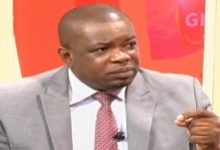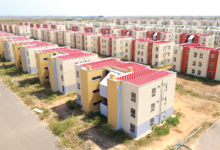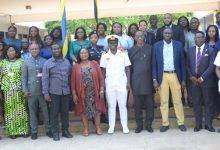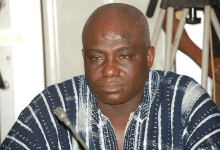On Wednesday, President Nana Addo Dankwa Akufo-Addo chaired an emergency meeting of the Authority of Heads of State and Government of the Economic Community of West African States (ECOWAS) to discuss the political situation in Guinea.
The meeting, joined by various political leaders in the sub-region as well as representatives of the United Nations, the African Union, among other stakeholders, became necessary because on Sunday, Colonel Mamadi Doumbouya, Commander of Guinea’s Special Forces, an elite military unit, announced a coup in that country following which its elected government and constitution were dissolved and land and air borders closed.
There is now the National Rally and Development Committee (CNRD) running the affairs of Guinea.
The military takeover has received global condemnation, with organisations and nations demanding the release of toppled President Alpha Conde and restoration of constitutional order to that country.
The ECOWAS meeting was, therefore, to decide the way forward so far as the regional political and economic bloc was concerned.
At the end of the day, Guinea was suspended from the 15-member bloc, which demanded a return to constitutional order and Conde’s immediate release, and also agreed to send a high-level mission to Guinea as soon as Thursday, that is, yesterday.
Sources within ECOWAS, which did not announce any immediate economic sanctions against Guinea, unlike it did against Mali following a coup there in August last year, said the bloc should be able to re-examine its position.
Some experts say ECOWAS is dealing with Guinea differently to some extent because its leverage with Guinea could be limited, in part because the country is not a member of the West African currency union and not landlocked like Mali.
Whatever the case is, The Ghanaian Times wishes to commend ECOWAS for its swift move to restore order in Guinea.
However, the paper is concerned that the leaders of bloc, who are heads of state and governments, fail to rein in their fellow heads of state when they are abusing constitutions and sovereignty of their various countries but come in to block coup makers from joining them on the tickets of their beloved countries.
Changing a constitution for personal gains such as getting a third term or entrenching oneself in power should be viewed as a putsch or even more serious because it is done with the power of the people when their hands are tied in the sense that they have no constitutional or legal power to stop their supposed representatives, legislators, their Members of Parliament, from endorsing this heinous illegality.
The paper, therefore, agrees with pro-democracy advocates that ECOWAS has not stood up robustly enough in recent months against democratic backsliding in West Africa.
For instance, it remained silent last year as Conde and Ivory Coast President Alassane Ouattara sought third terms after changing constitutions that would have forced them to step down, even though opposition politicians in the two countries denounced the moves as illegal.
Such illegal constitutional moves should be regarded more serious because they always lead to public unrest, which in turn results in arrests of political opponents and death of and injuries to some members of the public.
For instance, in the case of Conde, reports say dozens died whereas in that of Ouattara several people died but in last Sunday’s coup in Guinea, no blood was shed.
There was rather mass jubilation across the country for that change of government, an act pregnant with various messages against Conde that must not be discounted.
It’s time for ECOWAS to do more to entrench constitutional rule in its member states rather than come in to deal with coup leaders who may have the goodwill of their people.





